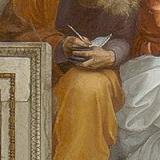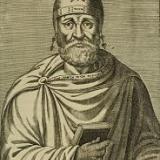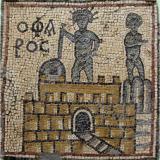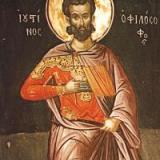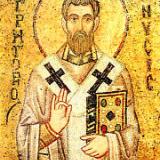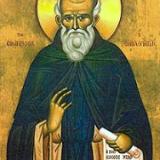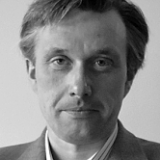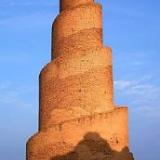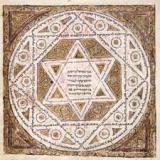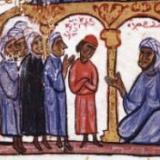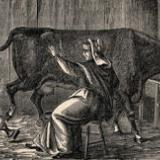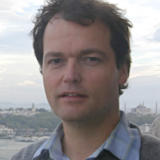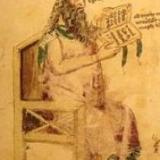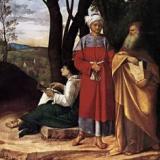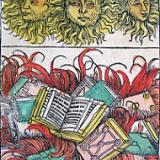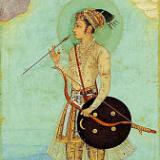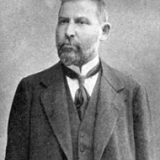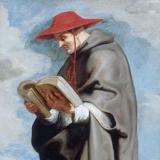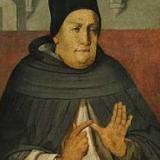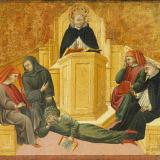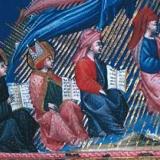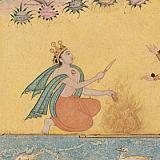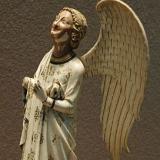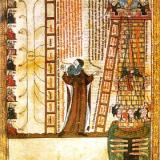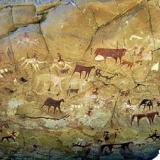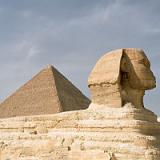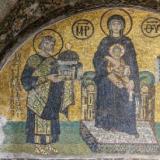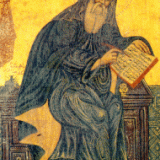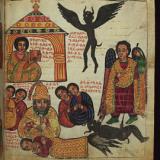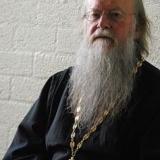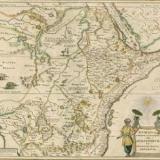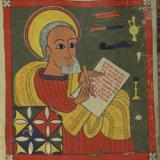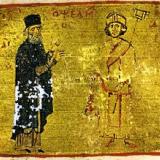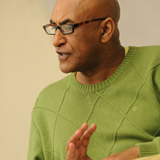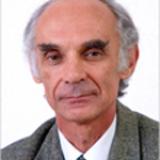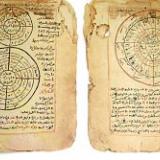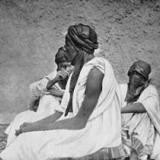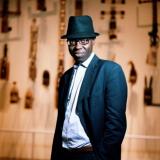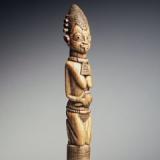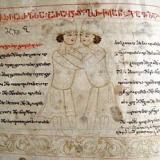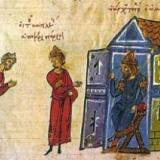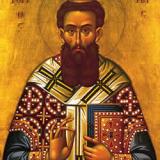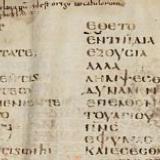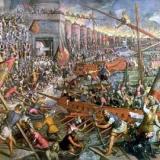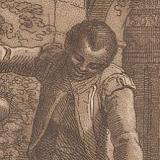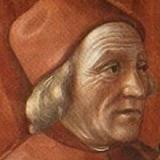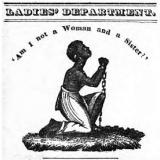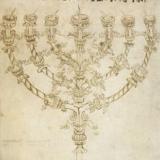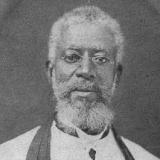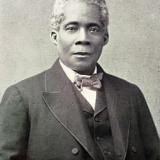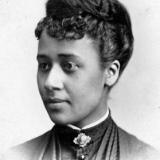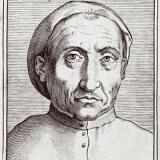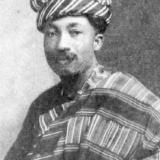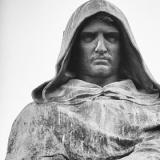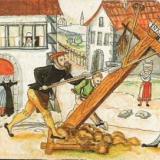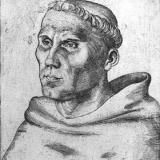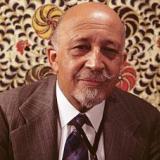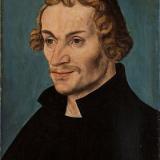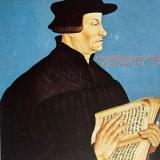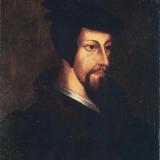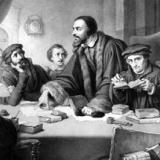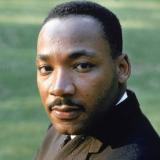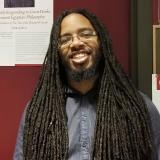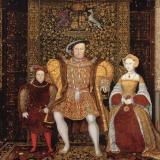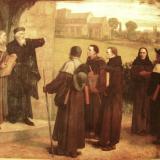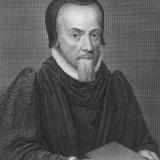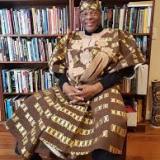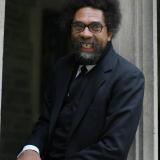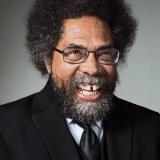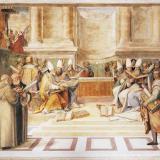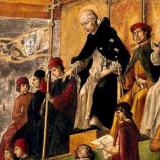Religion and Reason
Posted on
Peter discusses two very early Greek philosophers, both from Miletus: Anaximander and Anaximenes.
Posted on
We put the Philo in philosophy this week, as Philo of Alexandria reads the Bible through the lens of Middle Platonism.
Posted on
Neoplatonism had a long-standing association with traditional Greek religion. How did philosophers respond when Christians gained ascendancy?
Posted on
Irenaeus, Clement, and Justin Martyr struggle to define Christian orthodoxy and claim philosophy back from the Greeks.
Posted on
Basil of Caesarea, his brother Gregory of Nyssa, and Gregory of Nazianzus use philosophy to help the poor and to defeat their theological opponents.
Posted on
Maximus the Confessor brings us to the brink of the medieval Byzantine period with his philosophical defense of Christ’s full divinity and full humanity.
Posted on
George Boys-Stones joins Peter to discuss philosophy in the Bible and the Greek Church Fathers.
Posted on
A first look at the philosophical contributions of Islamic theology (kalām) and its political context, focusing on the Mu'tazilites Abū l-Hudhayl and al-Naẓẓām.
Posted on
The roots of Jewish philosophy in the Islamic world, focusing on the Rabbinic background in the Mishnah and Talmud, and the thought of early figures like Isaac Israeli.
Posted on
Al-Fārābī combines Islam and Greek sources to present the ideal ruler as a philosopher who is also a prophet.
Posted on
In his Incoherence of the Philosophers, al-Ghazālī attacks Avicenna’s theories about the eternity of the universe and insists on the possibility of miracles.
Posted on
Why did al-Ghazālī judge "the philosophers" to be apostates? Peter finds out from Frank Griffel.
Posted on
An introduction to “the Commentator” Averroes, and his defense of philosophy in the Decisive Treatise
Posted on
Judah Hallevi argues that Judaism has a better claim to belief than philosophy, Christianity, or Islam.
Posted on
Maimonides’ works provoke a bitter dispute among Jews in France and Spain over the relation of philosophy to Judaism.
Posted on
The super-commentator Gersonides and other Jews digest the ideas of Averroes.
Posted on
Peter is joined by Mohammed Rustom in a discussion about Sufi authors including Ibn 'Arabī, al-Qūnawī, and Rūmī.
Posted on
Ideas spread to Mughal India from Iran, and prince Dārā Shikūh seeks to unite the wisdom of the Upanishads with the Koran.
Posted on
18th and 19th century intellectuals in India and the Ottoman empire, from Shāh Walī Allāhto the Young Turks, continue Islamic traditions and grapple with European science.
Posted on
Bonaventure argues that human knowledge depends on an illumination from God.
Posted on
An introduction to Thomas Aquinas, his views on faith and reason, and his famous “five ways” of proving God’s existence.
Posted on
Two rounds of condemnations at Paris declare certain philosophical teachings as heretical. But what were the long term effects?
Posted on
Did Siger of Brabant and Boethius of Dacia, who have been called “Latin Averroists” and “radical Aristotelians,” really embrace a doctrine of “double truth”?
Posted on
An interview with Jessica Frazier about philosophical ideas and arguments in the Vedas, Upanisads and later Hindu texts.
Posted on
In the Mīmāṃsā school’s founding text, Jaimini systematizes Vedic ritual and explores its theoretical basis.
Posted on
Medieval discussions of the Trinity charted new metaphysical territory, as we see in this interview with Richard Cross.
Posted on
Francis Clooney joins us to discuss the religious and philosophical aspects of Vedānta.
Posted on
Peter speaks to Jack Zupko about John Buridan's secular and parsimonious approach to philosophy.
Posted on
Be surprised by how many philosophical problems arise in connection with angels (how many can dance on the head of a pin is not one of them).
Posted on
The Renaissance ideals of humanism and universal science flourish already in the medieval period, in the works of Petrarch and Ramon Llull.
Posted on
Might philosophy be as old as humankind as we know it? We investigate the implications of findings concerning the origins of humankind in Africa.
Posted on
Peter King, Catarina Dutilh Novaes, and Russ Friedman discuss their approaches to medieval philosophy and its contemporary relevance.
Posted on
Ancient Egyptian figures and writings including the Pyramid Texts, Imhotep, and the "first monotheist" Akhenaten reflect on the nature of things and questions of morality.
Posted on
We begin to look at the third tradition of medieval philosophy, in which the heritage of classical antiquity is preserved and debated by the Byzantines.
Posted on
John of Damascus helps to shape the Byzantine understanding of humankind and the veneration of images, despite living in Islamic territory.
Posted on
Translations of religious and philosophical texts into Ge’ez, a national epic called the Kebra Nagast, and other developments in the story of philosophy in Ethiopia.
Posted on
Peter is joined by Andrew Louth for a discussion of John of Damascus and his theological use of philosophy.
Posted on
The 17th century Ethiopian rationalist Zera Yacob, hailed as the first modern Africana philosopher.
Posted on
Walda Heywat’s reaction to the thought of his teacher Zera Yacob, and the dispute over the authenticity of these two Ethiopian philosophers.
Posted on
Michael Psellos and his attitude towards pagan philosophy and the political life.
Posted on
Teodros Kiros discusses his work in political philosophy and the history of Ethiopian philosophical thought.
Posted on
Dominic O'Meara speaks to Peter about Michael Psellos, focusing especially on his political philosophy.
Posted on
The spread of Islamic scholarship in subsaharan Africa, focusing on intellectuals of the Songhay empire around the Niger River in the 15th-17th centuries.
Posted on
Uthman Dan Fodio and his family were scholars, poets, and warriors whose jihad in 19th century Nigeria created the Sokoto Caliphate.
Posted on
Peter speaks to Souleymane Bachir Diagne about Islamic scholars in West Africa.
Posted on
Special forms of knowledge and the explanation of misfortunes in African tradition.
Posted on
The Neoplatonist Proclus gets mixed reviews from Christians, as Nicholas of Methone refutes him but the Georgian philosopher Ioane Petritsi helps to revive his thought.
Posted on
Intellectual exchange between Christians and Muslims, and the later flowering of Syriac literature including the philosopher Bar Hebraeus.
Posted on
Gregory Palamas and the controversy over his teaching that we can go beyond human reason by grasping God through his activities or “energies”.
Posted on
Thomas Aquinas finds avid readers among Byzantines at the twilight of empire, and is used by both sides of the Hesychast controversy.
Posted on
When the Byzantine empire ended in 1453, philosophy in Greek did not end with it. In this episode we bring the story up to the 20th century.
Posted on
Quobna Ottobah Cugoano and Olaudah Equiano advance the goals of the abolitionist movement through a groundbreaking political treatise and an influential autobiography.
Posted on
Marsilio Ficino’s revival of Platonism, with a focus on his proofs for the soul’s immortality in his magnum opus, the Platonic Theology.
Posted on
Maria W. Stewart’s public addresses bring the concerns of African American women into the struggle against racial prejudice.
Posted on
An interview with Denis Robichaud on how, and why, Plato was read in the Italian Renaissance.
Posted on
Jewish philosophers in Renaissance Italy, focusing on Leone Ebreo’s Dialogues of Love, the Averroism of Elijah del Medigo, and Italian Kabbalah.
Posted on
From his time in Liberia to his later concentration on the reform of African American culture, Alexander Crummell identifies progressive “civilization” as a means of liberation.
Posted on
Edward Blyden gains appreciation for Islam in West Africa and gradually moves from political nationalism to cultural nationalism.
Posted on
Anna Julia Cooper’s A Voice from the South, an unprecedented contribution to black feminist theory.
Posted on
Pietro Pomponazzi and Agostino Nifo debate the immortality of the soul and the cogency of Averroes’ theory of intellect.
Posted on
West African intellectuals like J.E. Casely-Hayford (pictured) and Mojola Agbebi build upon Edward Blyden’s ideas at the dawn of the twentieth century.
Posted on
Giordano Bruno’s stunning vision of an infinite universe with infinite worlds, and his own untimely end.
Posted on
For our finale of the Italian Renaissance series we're joined by Ingrid Rowland, to speak about art, philosophy, and persecution in Renaissance Rome.
Posted on
How humanism and scholasticism came together with the Protestant Reformation to create the philosophy of 15 - 16th century Europe.
Posted on
How Luther’s doctrine of justification by faith alone and his attack on the Church relate to the history of philosophy.
Posted on
Du Bois moves to the left, and revisits and refines older positions during the latter half of his very long life.
Posted on
Luther’s close ally Melanchthon uses his knowledge of ancient philosophy and rhetoric in the service of the Reformation.
Posted on
The Swiss theologian Zwingli launches the Reformation in Switzerland, but clashes with Luther and more radical Protestants.
Posted on
John Calvin's views on predestination and the limits of human reason.
Posted on
In a surprise twist, some Protestant thinkers embrace the methods of scholasticism, and even find something to admire in the work of Catholic authors like Aquinas.
Posted on
An interview with Helen Hattab on the scope and impact of scholastic philosophy among Protestants.
Posted on
The story of Martin Luther King Jr. up to 1963, focusing on the development of his philosophy of nonviolence.
Posted on
Chike joins Peter to look back at our coverage of Africana philosophy in the first half of the 20th century.
Posted on
The Pan-Africanist philosopher Maulana Karenga defends the importance of cultural revolution and invents the holiday Kwanzaa.
Posted on
The historical context of English philosophy in the sixteenth century, with particular focus on Thomas Cranmer, and the role of religion in personal conscience and social cohesion.
Posted on
John Knox polemicizes against idolaters and female rulers, while the humanist George Buchanan argues more calmly for equally radical political conclusions.
Posted on
Richard Hooker defends the religious and political settlement of Elizabethan England using rational arguments and appeals to the natural law.
Posted on
What inspired Asante's philosophy of Afrocentricity, and its relationship to religion, nationalism, and feminism.
Posted on
An introduction to the thought of Cornel West, focusing on his early essay “Philosophy and the Afro-American Experience.”
Posted on
Cornel West joins us to look back on the development of his thought and the many authors who have inspired him.
Posted on
How the Counter-Reformation or Catholic Reformation created a context for philosophy among Catholics, especially in Spain, Portugal, and Italy.
Posted on
How religious persecution and censorship shaped the context of philosophy in Catholic Europe in the sixteenth century.

